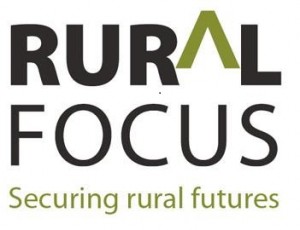Provision of a Feasibility Study: development of business case to create a sustainable biomass supply chain for wood fuelled energy systems in and around North Ayrshire. This involved evaluating 64 vacant, derelict and contaminated sites (covering 1,200 hectares) for the potential planting of energy crops and woodland for biomass production. The exercise also included extensive stakeholder engagement.
Energy Technologies Institute
Refining Estimates of Land for Biomass. C4E led the task and were responsible for the deliverable: Review of processes to convert land to energy crops. This involved producing a report reviewing of steps and agencies involved in land conversion and the opportunities and barriers to energy crop cultivation.
Managing a 3 hectare SRC willow plantation on a landfill site to be used as a biofiltration system for treated effluent.
Advised on the planting of large energy crop trial establishment comprising of over 30 willow, poplar and eucalyptus varieties. Revised biomass boiler installer training course and materials and delivered installer training. Assisted in rewriting the Biokompakt boiler user guide and installation manuals.
Enabling UK Biomass project. C4E developed an energy crops growers’ questionnaire and produced a report aiming to try to understand more about the demographics and motivations of farmers that have planted and /or removed energy crops. C4E also produced a briefing note and evidence base arguing why miscanthus should be on the Biomass Supplier List. This was submitted to DECC and Ofgem.
 European Commission’s Seventh Framework Programme – Rokwood project
European Commission’s Seventh Framework Programme – Rokwood project
Crops for Energy is one of 20 partners from 6 countries involved in the Rokwood project focussing on improving the market conditions for the increased uptake of short rotation woody energy crops such as willow, poplar and eucalyptus. Find out more from our blog or the Rokwood website. Crops for Energy is leading on three tasks:
- Definition of regional and transnational research topics
- Development of International co-operation strategies
- Creation of final project publication
Department of Energy and Climate Change (DECC) Wetland Biomass to Bioenergy competition
Crops for Energy is part of a consortium looking at innovative ways to deal with biomass produced from wetlands management. The project involves the harvest of reed, rush and willow and its pyrolisation into charcoal and subsequent gasification to produce clean syngas which will be used to produce electricity. Crops for Energy wrote the bid on behalf of the consortium and was in charge of co-ordinating the desk study in phase 1 of the project. For more information see our blog.
Biomass boiler feasibility studies for South Somerset District Council
We evaluated the economic and logistical implications of using locally sourced miscanthus to provide feedstock for four boilers in council owned buildings including the Octagon Theatre and Brympton Way Offices.
 Estate Woodfuel audits for For Tamar Valley AONB
Estate Woodfuel audits for For Tamar Valley AONB
We carried out five woodfuel production and utilisation audits for large estates (including two owned by the National Trust). We also created a spreadsheet template for owners of estates to estimate their woodland resource, size a boiler for their buildings, calculate the savings compared to fossil fuel, the capital costs of the project and the returns from the RHI. This project was funded by Cordiale – an EU cross border project working on sustainable landscape management.
Simon Bates said: “Today I got around to reading all your reports and trying both the woodfuel production and utilisation templates. I must say that they are brilliant. The instructions are concise and logical and all the input fields worked for me and generated sensible outputs. Many thanks for your high quality work.”
New Milton Sand and Ballast
Helped develop biomass options for 100 hectares of farmland and restored landfill sites and creating markets for waste wood. Project managed planting and aftercare of 19 hectares of miscanthus.
 South Devon Coastal Renewable Network (SDCRN) – wood fuel report
South Devon Coastal Renewable Network (SDCRN) – wood fuel report
Energy Action Devon commissioned the Centre for Sustainable Energy and Crops for Energy to undertake a study examining the use and supply of wood fuel. This was carried out by assessing the supply and demand of biomass within the area with a view of developing a wood fuel hub to source, process and supply to a range of markets. Read the report here.
Turnkey project management of biomass boiler installation and energy crop planting for Tredethick Farm Cottages
We were involved in this project from start to finish providing :
- Initial feasibility study looking at boiler size, woodfuel requirement, RHI rebate etc
- Produced a project brief and requested quotes from several installers
- Helped normalise the quotes so they were all on a level playing field
- Negotiated a timetable with the chosen installer
- Produced a woodfuel tender and negotiated an interim contract
- Applied for an Energy Crops Scheme grant for planting 5.7 ha of miscanthus grass
- Project managed the land preparation, planting and aftercare
- Applied for RHI accreditation through Ofgem
Read more about the project here.
Resource Efficiency for Farms (R4F) scheme
 On behalf of Business West and Rural Focus Crops for Energy provide advice and guidance and on-farm reviews. This involves face to face discussions with farmers and the completion of an action plan template. The action plan identifies the energy use (electricity, heating and tractor diesel), water use and inorganic waste production of the farm and recommends opportunities for changing practices and investing in technology that can help save and make money for the farm business. We have completed ten R4F action plans and an additional seven days of R4F technical support for farmers wishing to take the recommendations further. Five of the farmers we have assisted have so far installed biomass boilers. You can find out more about the scheme and arrange a visit by phoning 08456 047 047 or logging on here.
On behalf of Business West and Rural Focus Crops for Energy provide advice and guidance and on-farm reviews. This involves face to face discussions with farmers and the completion of an action plan template. The action plan identifies the energy use (electricity, heating and tractor diesel), water use and inorganic waste production of the farm and recommends opportunities for changing practices and investing in technology that can help save and make money for the farm business. We have completed ten R4F action plans and an additional seven days of R4F technical support for farmers wishing to take the recommendations further. Five of the farmers we have assisted have so far installed biomass boilers. You can find out more about the scheme and arrange a visit by phoning 08456 047 047 or logging on here.
Project management of energy crop planting at East Midlands Airport
 This project followed the completion of a feasibility study looking at the potential of growing energy crops on land owned by East Midlands Airport. Crops for Energy is project managing the planting of 29 hectares of willow over three years. The fuel produced will ultimately be used in a biomass boiler providing heating to the terminal building.
This project followed the completion of a feasibility study looking at the potential of growing energy crops on land owned by East Midlands Airport. Crops for Energy is project managing the planting of 29 hectares of willow over three years. The fuel produced will ultimately be used in a biomass boiler providing heating to the terminal building.
![]() Bioheat Site Assessor Training Modules
Bioheat Site Assessor Training Modules
On behalf of Regen SW, Crops for Energy produced an online interactive training package that teaches the basics of biomass wood fuel systems. There are seven training modules that include Woodfuel types and supply; Boiler systems; Overall system design and installation; Operations and maintenance; Planning and permissions; Procurement, contracting and project management; and Economic appraisal/business case.
The training aims to produce a more informed end user/customer who is able to understand the key overall system design and specification features. It does not replace the need for professional design, installation and consultancy, but is an enabler for potential customers to research and explore options for successful system installation. The training is available on the South West Woodshed website.
 Woodfuel supply and demand in Dorset
Woodfuel supply and demand in Dorset
Crops for Energy and the Centre for Sustainable Energy were commissioned by Dorset Area of Outstanding Natural Beauty (AONB) to look at the potential woodfuel resource from sustainable management of woodlands, arboricultural arisings, heathland management and energy crops. This was compared with future demand for woodfuel up until 2026 from a variety of end users including new housing, schools, estates, elderly peoples’ homes and farms. The report can be downloaded from this link.
Energy crops feasibility studies
In 2009 Crops for Energy were commissioned by East Midlands Airport (EMA) to investigate the potential of growing and using woodfuel from a variety of energy crops on 62.5 hectares of mixed farmland surrounding the airport. The report looked at the potential for growing short rotation coppice, miscanthus, short rotation forestry and broadleaved coppice on the EMA farm. A similar study was carried out on behalf of Bristol City Council in 2007. This looked at the potential of growing short rotation coppice on three tenant farms in Avonmouth comprising a total area of 75 hectares.
Westwoods is a woodfuel producer group which covers the West of England sub region. The aim of this initiative is to strengthen woodfuel supply infrastructure through providing a brokering service between woodfuel suppliers and end users and promoting best practice to wood fuel suppliers by creating woodfuel quality standards. Kevin Lindegaard has been involved with this project from the start having written the successful funding bid to the Bioenergy Infrastructure Scheme worth £120,000. He is currently the Woodfuel Contracts Manager for the project. For more information visit the Westwoods website
Co-ordinated Woodfuel Initiative
The CWI was a regional programme managed by the Centre for Sustainable Energy which ran from 2006-2008. The service offered telephone advice and site visits to householders, farmers, community groups and businesses interested in installing a biomass boiler. Kevin Lindegaard of Crops for Energy was one of 12 expert advisors who took part in site visits and feasibility studies of biomass energy options. The nine properties reported on by Kevin ranged from a four bedroom house to a 60 room stately home.
 Biomass boiler feasibility studies
Biomass boiler feasibility studies
In 2009 Crops for Energy investigated the potential for installing biomass boilers and solar water heating at five elderly peoples’ homes managed by Bristol City Council. The mini-feasibility studies suggested that two of the sites would be ideal for biomass installations. These sites and three primary schools identified by a similar study in 2008 were brought together in an application for grant funding from Round 5 of the Bioenergy Capital Grants Scheme administered by the Department of Energy and Climate Change (DECC). The bid was successful and awarded a grant of £256,135.
Renewable Energy for Farms
Crops for Energy organised and chaired four renewable energy seminars in Devon, Somerset, Gloucestershire and Dorset on behalf of Business Link. The events, funded by the Farm Business Advice Service were attended by 160 farmers and focused on wind energy, biomass, anaerobic digestion, micro renewables and biodiesel production.
Crops for Energy were commissioned by LANTRA Awards to produce a two day accredited course on energy crops. The course is highly interactive and covers all aspects of energy crop growing, processing, supply and end use. Energy crops covered include short rotation coppice (SRC) willow, miscanthus and other energy grasses, broadleaved coppice and short rotation forestry (SRF). It is of particular interest to farmers, estate owners and organisations with farm holdings. The course involves group exercises, flipchart exercises, a crop walk and worksheet, a visit to a biomass boiler and concludes with a short exam. Kevin Lindegaard of Crops for Energy acts as a Technical Standards Verifier for Lantra Awards making sure that the quality of the course and instructors remains at a high level.
Bioenergy: Environmental Impact and Best Practice
Kevin Lindegaard of Crops for Energy acted as an expert advisor to Landuse Consultants in evaluating a study commissioned by Wildlife and Countryside Link looking at the potential environmental impacts of increased bioenergy production and use in the UK. You can read the report at the following link.
Anaerobic digestion
On behalf of Wessex Grain, Crops for Energy provided an independent evaluation of the technical data presented for the Lowbrook anaerobic digestion plant as part of the application process for funding from Round 4 of the Bioenergy Capital Grants Scheme.







